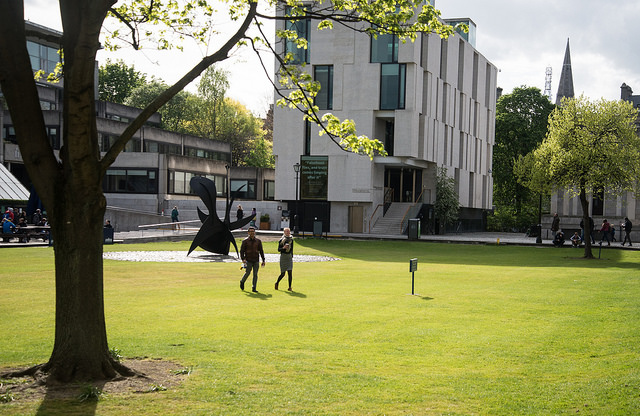Staff flagged low morale, increased administration workloads and low incentives as major barriers to taking on leadership roles within the College, at a town hall meeting for Trinity’s upcoming strategic plan today.
Staff also pointed to a stark divide between administrative and academic staff, with temporary contracts and few clear opportunities for progression raised as matters of serious concern.
Those present, clearly keen to put the issues facing them to College’s senior officials, jumped at the chance to force Trinity to consider the pressures on staff amid the university’s continued attempts to grow over the next few years.
Several staff members said that it was difficult to encourage academics to run for head of department, head of school or dean of a faculty given the low incentives to go for these roles. Indeed, the Dean of the Arts Humanities and Social Sciences (AHSS), Darryl Jones, raised concerns about a widely held belief that taking on such a role is “actively damaging to your career”.
“Too often at the moment, our senior colleagues are not putting themselves forward”, Jones said. “We need to make taking on these positions worthwhile.”
One staff member highlighted the election of positions like the deans of faculties, and the different weighting between the votes of academic and administrative staff. In terms of weighting, academic staff get more of a say than administrative staff in the elections. Morash expressed surprise that this was the case and said that it was something College could look to reform.
Vice-Provost Chris Morash, who ran the town hall meeting, appealed to those in attendance for ways in which College could preserve the sense of community within Trinity, while in the meantime expanding the global focus of the university.
Speaking about non-academic staff and their place within the College, one staff member criticised the policy of short, temporary contracts. This, she said, is “something we have to address as a matter of extreme urgency”. She said that proper career progression was “the massive elephant in the room” and that “a lot of pain had been felt” over the widespread use of temporary contracts.
Morash presented the key tenets of the strategic plan in the JM Synge theatre in the Arts Block this afternoon, with an emphasis on sustainable, yet considerable growth.
Perhaps anticipating issues with community and staff feeling valued, Morash spoke about the plan’s aim of making sure that “people feel that no matter what they are doing, they are contributing something bigger”.
He mooted the introduction of a system whereby students and staff could take modules without prerequisites on a per-module basis. This, he said, would allow any staff member – academic or otherwise – to enjoy the quality of education in Trinity.
He also spoke about a mooted reduction of the student–staff ratio to 14:1. Trinity’s current student–staff ratio is 22:1, putting huge pressure on College to provide high-quality education. The Irish Universities Association (IUA) has spent the last year lobbying for increased higher education funding, using the student–staff ratio in Irish universities today as a key indicator of an overburdened higher education sector.
Trinity has had many run-ins with trade unions over the last few years due to issues with contracts and treatment of staff.
College recently put forward a proposal for the staffing of new buildings, with a surge in contract staff sparking criticism among Estates and Facilities staff.
Last year, Trinity was accused of treating staff with “disdain” by SIPTU, amid a row between College and three trade unions over the earlier start to term in September.
The Trinity branch of SIPTU voted on a motion that accuses College of failing to engage with staff concerns about the Trinity Education Project, notably the earlier start to term in September as part of the overhaul of the academic year structure.
The motion also criticised “diktats” from the heads of Trinity’s departments, as staff were asked to adapt to “changed work processes, calendar changes and timetabling of opening hours” that come with the earlier start to term.
A Labour Court ruling ended the long dispute over the additional workload caused by changes to the College’s year structure, with an extra two days of annual leave awarded on a once-off basis, to compensate for disruptions to the working schedules of staff resulting from the ongoing implementation of the Trinity Education Project.







